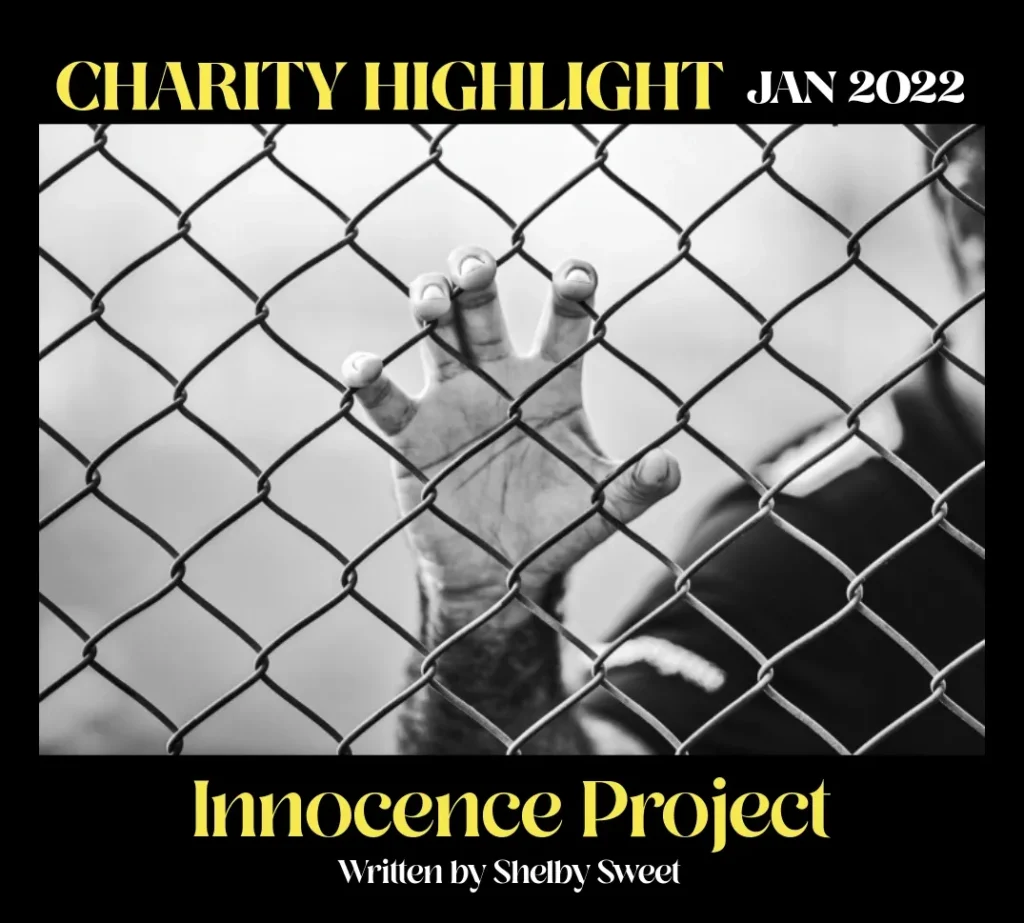
In honor of Martin Luther King Jr. Day on January 17th, our Charity Highlight for this month is the Innocence Project. This means that during the month of January, Rogue Ramms will be donating 50 percent of all our profits to the Innocence Project so that we can support the incredible, groundbreaking work they do to help free the innocent and improve our justice system.
What is the Innocence Project?
Founded in 1992 by Peter Neufeld and Barry Scheck, Innocence Project is a nonprofit organization whose goal is to exonerate those who have been unjustly imprisoned and reform the criminal justice system to prevent future injustices. The Innocence Project works to prove the innocence of their clients through post-conviction DNA testing. Even though they are based in New York City, Innocence Project takes on cases from all over the United States, and (as of now) 375 people have been exonerated because of DNA testing, 21 of whom had been on death row.
So, what does “post-conviction DNA testing” mean?
Well, most cases Innocence Project handles for the wrongly convicted involve some sort of human-error or fault in our justice system such as eyewitness misidentification, misapplication of forensic science, or false confessions that the accused had made because they were under duress, coerced, or made to believe they wouldn’t stand a chance at trial and so plead guilty with the hope of getting a more lenient sentence. Since DNA technology has advanced exponentially in recent years, Innocence Project is able to go back and conduct new, more specific tests that could potentially rule out those who had been initially convicted.
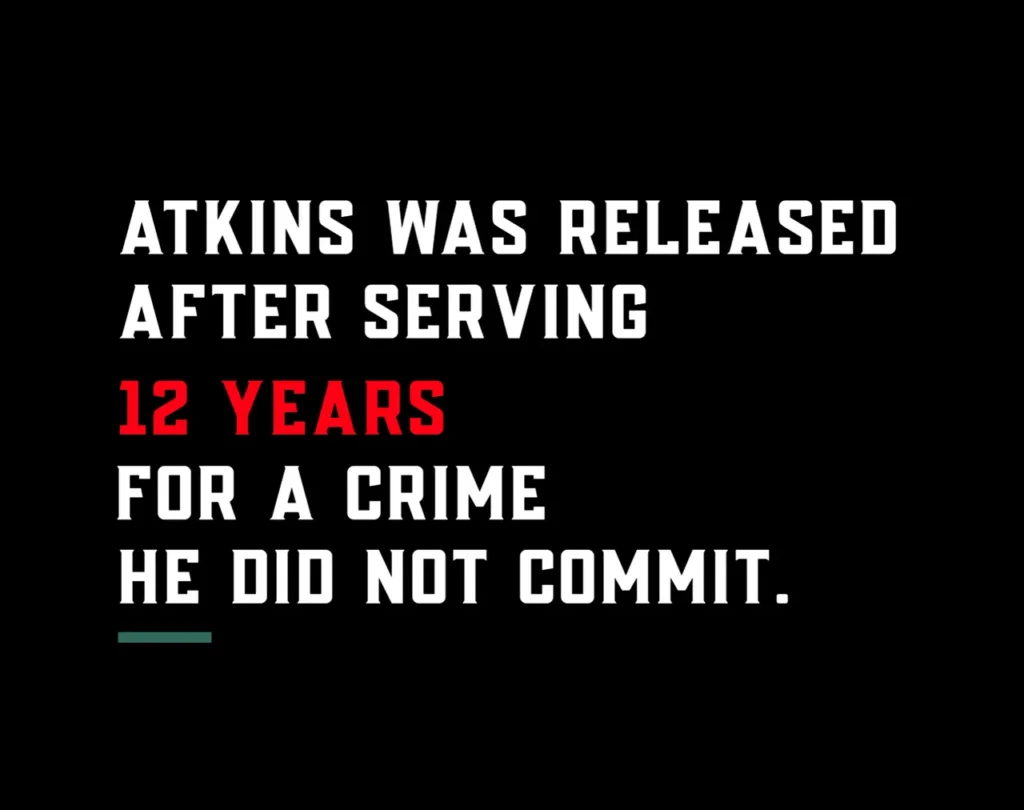
Such is the case with Herman Atkins, who was convicted of rape and armed robbery right after he graduated high school back in 1986. He was initially sentenced to 45 years in prison but – thanks to his hardworking attorney, who never gave up on him, and Innocence Project – he was exonerated when DNA tests of a specimen left behind at the crime scene concluded that, while the blood type and PGM of the assailant was consistent with Atkins, the DNA itself was not a match. Atkins was released after serving 12 years for a crime he did not commit.
Why did it take that long?
While Atkins’ case was accepted by Innocence Project in 1993 (seven years after his conviction), it still took two years for the evidence from the crime to be located to conduct the testing, and then an additional four years after that for Innocence Project to gain access to the evidence and for the testing to be approved by the courts. Once the DNA testing proved that Atkins was innocent, he still wasn’t actually released until the following year in February 2000.
Fortunately for Atkins, after his release, he was able to immediately start working and attending college. He met his now-wife, Machara Huges, and after they were married, the two of them founded the non-profit organization Life Intervention for Exonerees. Atkins was accepted to California Western School of Law in 2009, and he won a civil suit against Riverside County, California, that awarded him $2 million. Atkin’s case played a key part in the state of California raising the compensation for the wrongly accused from a maximum total of just $10,000 to $100 for each day they had spent in prison.
Aside from working on exonerations, what else does Innocence Project do?
While fighting the battle to free the innocent is one of the main priorities of Innocence Project, they also focus on actually supporting the exonerees once they’re released.
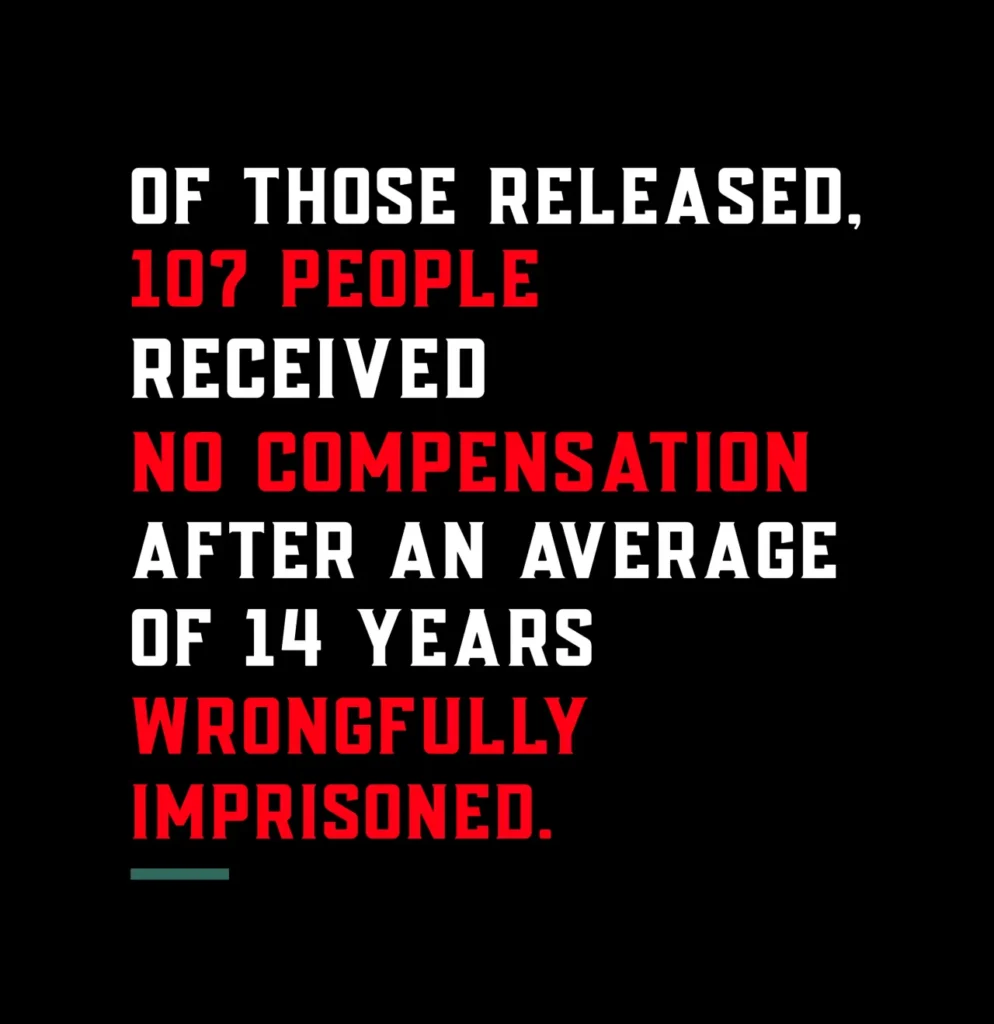
Fortunately, out of the 375 exonerees, 268 of them have been compensated (like Atkins) to help get them back on their feet. Unfortunately, that still leaves about 29 percent of folks who have spent an average of 14 years in prison (for a crime that they did not commit) without any support, having to rebuild their lives themselves from scratch. That’s why Innocence Project set up the Exonerees Fund, which helps provide recent exonerees with necessities like healthcare and housing. Through this fund, Innocence Project is able to cover rent and utilities for exonerees their first year out.
The Innocence Project also has a great team of social workers to provide intense emotional support and help exonerees with their transition back into everyday life. They help with finding employment opportunities, securing adequate housing, and connecting with mental health services to help overcome years of trauma from being unjustly imprisoned. They also set up support groups and workshops to help those who have been exonerated create a community that allows them to share their truth with others who can understand what they’ve been through.
The Innocence Project also has a first-class policy department that works to improve and reform our justice system so that people who are falsely accused are never imprisoned in the first place. They support policy that grants easier access to post-conviction DNA testing and evidence retention, as well as other legal mechanisms for the wrongly accused to prove their innocence by using new non-DNA evidence.
They also support policy that grants better compensation for the newly exonerated (like with the Herman Atkins case) and policy that limits the use of coercive tactics by law enforcement to secure a false confession, especially from minors. They are currently helping push a package of bills in New York that will help reveal and prevent wrongful convictions, thereby setting a precedent for other states to follow. You can read more about these bills (and what it could mean for the future of our justice system) on their website HERE.
What can I do to help?
Are you feeling frustrated by the lack of action our justice system takes in freeing and supporting innocent people? Good. We are, too. While we can’t all go get law degrees to fight for systemic change, there are still plenty of ways we can help support the cause.
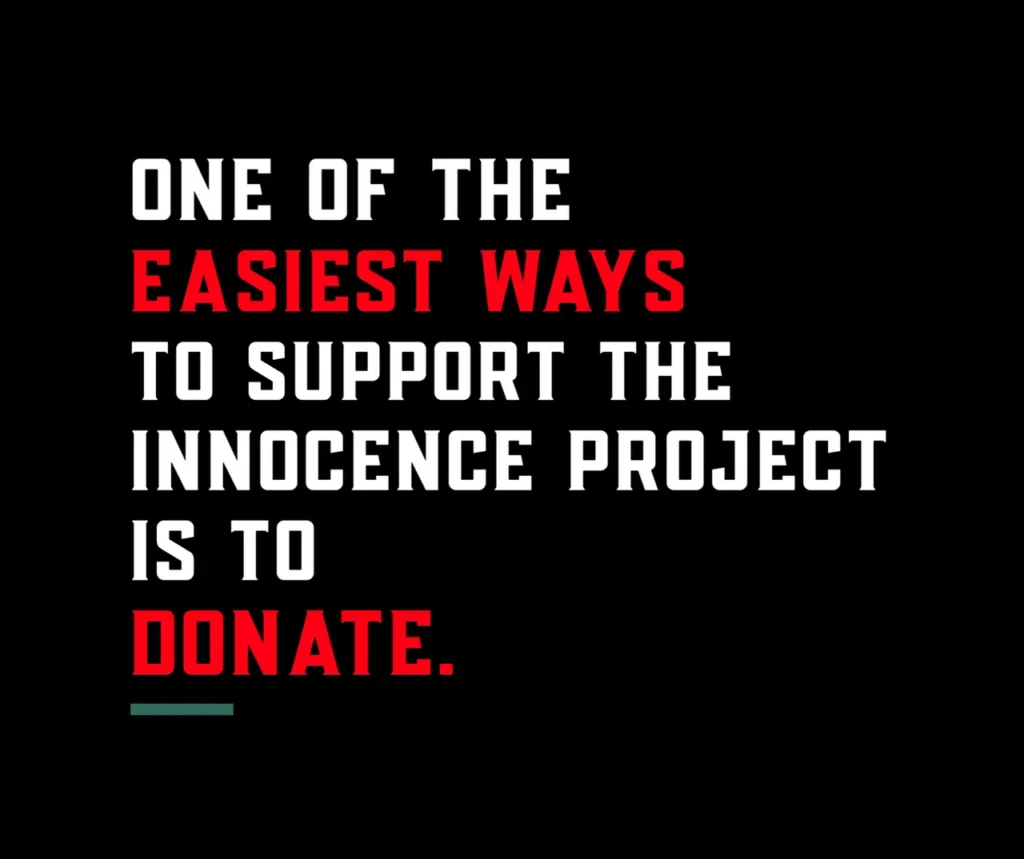
You can donate.
One of the easiest ways to support the Innocence Project is to donate. You can donate to the Innocence Project directly or support their Exonerees Fund. Their website makes it super easy; they give you plenty of options for how you can donate, and all donations made are 100% tax-deductible. You can provide a one-time gift of any amount of your choosing or (if you’re as passionate about advocating for the innocent as we are) you can pledge to make a monthly donation. You can donate online, by mail by filling out the donation form on their website and sending it to their New York office (address listed on their website), or you can call their donation line at 212-364-5386. Every little bit helps!
However, I know we’re living through some really hard times right now, so it’s completely understandable if you don’t have much money to spare. Don’t worry there are plenty of other ways to get involved!
Sign up for the newsletter.
You can show your support for the Innocence Project by signing up for their mailing list HERE to stay up to date on their latest cases and hear about other ways you can get involved.
Sign and share petitions.
Signing and sharing petitions is another quick and easy way to show your support. The Innocence Project features a handful of petitions on their website, and if you pledge to join the movement for innocence, you’ll be emailed newer petitions and other actions you can take to support further reform. The petitions take less than a minute to fill out. All you need is your first/last name, email, phone number, and zip code!
Volunteer!
If you live in or near New York City, you can donate your time by volunteering! Just fill out the form HERE on their website to get started. If you don’t live close enough to the Big Apple to make it into the office, you can take a look at the Innocence Network website to help you find an organization closer to your area.
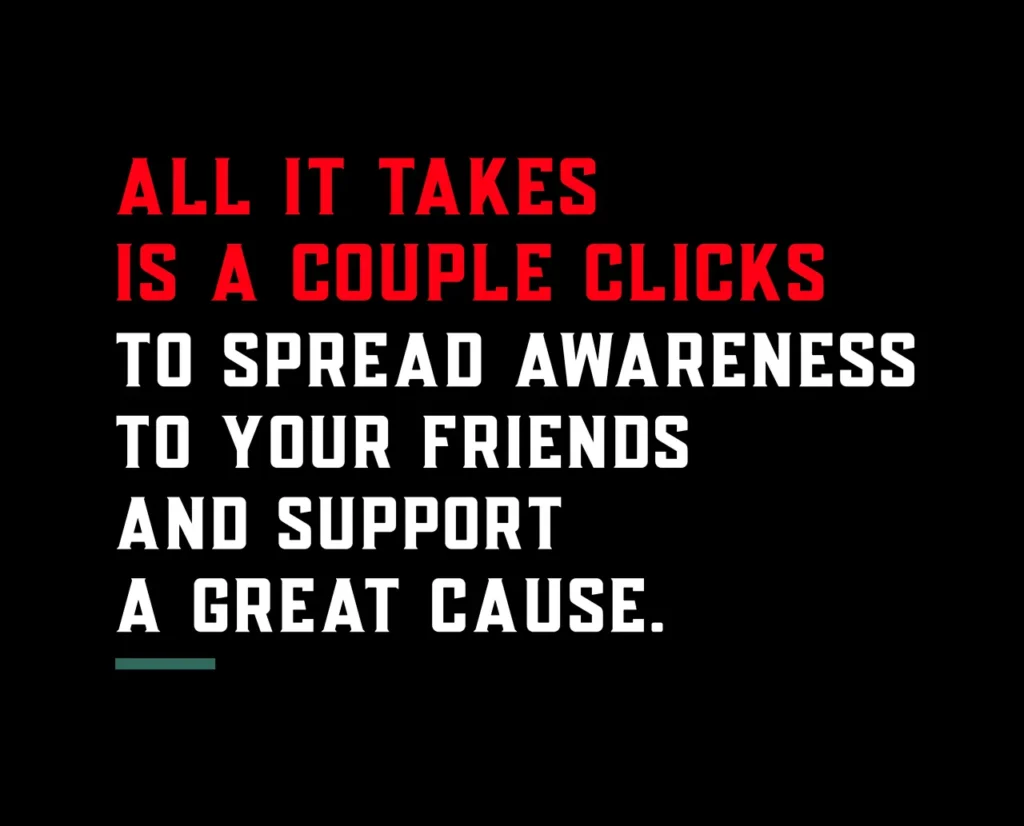
Fundraise.
You can start a Facebook Fundraiser! There is so much misinformation that gets spread around social media, so why not use the platform to instead share something that will actually benefit people. All it takes is a couple of clicks to spread some awareness to your friends and support a great cause!
Also, did you know that when you start a fundraiser on Facebook, Facebook pays all of the processing fees for you so all of the money that you donate goes directly to the non-profit/charity you’re donating to? I’ll be honest with you, I didn’t. So, even if you can’t donate much yourself, Facebook provides a quick and easy way for your loved ones (or some old high school/college acquaintances you added ages ago) to share their support as well.
Buy merch.
You can buy Innocence Project merchandise from the shop on their website. Browse anything from T-shirts to tote bags to coffee mugs! Not only are you monetarily supporting the cause of helping to free the innocent, but by wearing the merch, you’re spreading awareness on an issue that has only really become mainstream in the last two years. I’m partial to the “Justice Watchdog” doggie bandana myself. It’s adorable!
Above all, you need to educate yourself and spread awareness.
The Innocence Project provides numerous resources to help you and those you love to learn more about wrongful convictions. You can check out their website for links to learn about false confessions, misuse of forensic science, and a multitude of other causes as well as what they are trying to do to mitigate them.
You can help educate others by booking a wrongful convictions expert to come speak to your school, place of work, or organization — they travel all over the world to discuss a variety of social justice topics such as coerced confession, official misconduct, litigation, and race. The Innocence Project’s team of speakers consists of both staff members and people who were formerly incarcerated for crimes that they did not commit, including Korey Wise (one of the Central Park Five). Click HERE to book a speaker!
Throw a house party!
Another way Innocence Project recommends educating your community is by throwing a house party!
Okay, I know what you’re thinking. “What? How can having a house party possibly help the Innocence Project?” I’m so glad you asked!
You see, this isn’t your typical college rager or a house show your friend’s band asked you to put on. This is a fundraising and educational event that specifically raises awareness about wrongful convictions. Now, you can go about this a couple of ways:
- You can make it a book club!
- Did someone say movie night?
- Invite an Innocence Project speaker to speak to your guests.
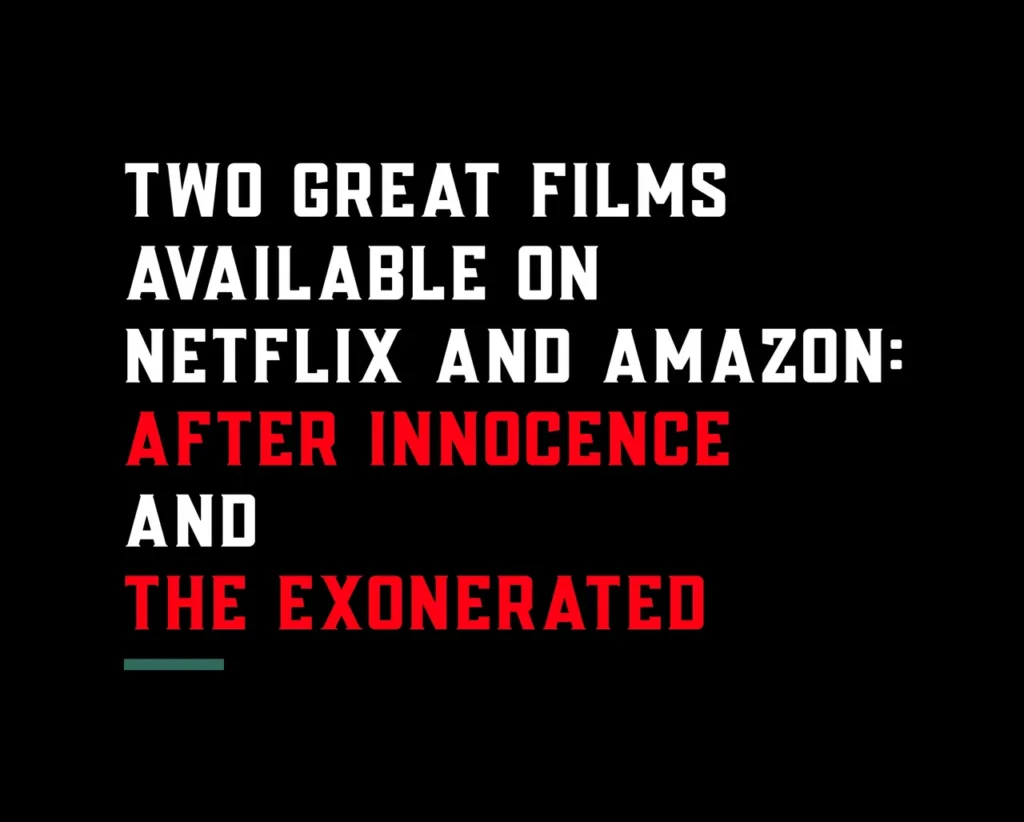
Read — or watch a movie! The Innocence Project recommends you read The Innocent Man or Actual Innocence (by the co-founders of Innocence Project!).
If you don’t think you’ll be able to get your guests to commit to reading a book beforehand, After Innocence or The Exonerated are both great films to show and are available on Netflix and Amazon. As for the speaker, Innocence Project will keep in touch with you during the planning process and will help you find a speaker to help educate your guests.
The Innocence Project provides you with sign in and contribution sheets for you to have your guests sign once they arrive, as well as informative pamphlets/handouts for your guests to read while waiting for everyone else to get there and the discussion to start. After the party, you’ll send both sheets back to them (either scanned or by mail) and each of your guests will receive thank you notes for their contribution and for attending from Innocence Project! To learn more, Innocence Project provides you with step-by-step instructions on their website HERE.
We here at Rogue Ramms sincerely hope you consider supporting this month’s charity spotlight with us. You can check out the Innocence Project’s website if you have any questions or for more information here.
